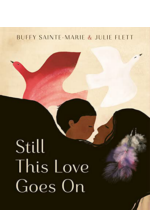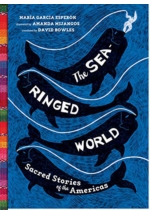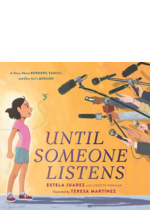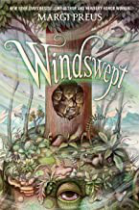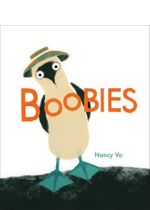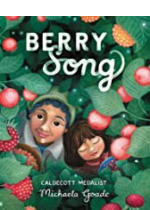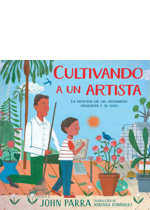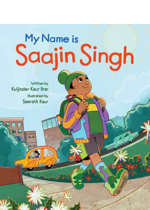
Saajin loves his name he loves it so much that he sees it spelled out in the world around him in his snacks, in the sky and sometimes he even sings it aloud. On his first day of school, Saajin is excited to meet his new classmates, but things take a turn when the teacher mispronounces his name as Say-jin and he is not sure how or if he should correct her. After trying to live with the different version of his name for a while and some thoughtful conversations with his family about the meaning behind it, Saajin realizes the importance of reclaiming his name and embracing his identity. This empowering story, accompanied by energetic and vibrant art by Samrath Kaur, will resonate with any reader who has ever felt misunderstood.

